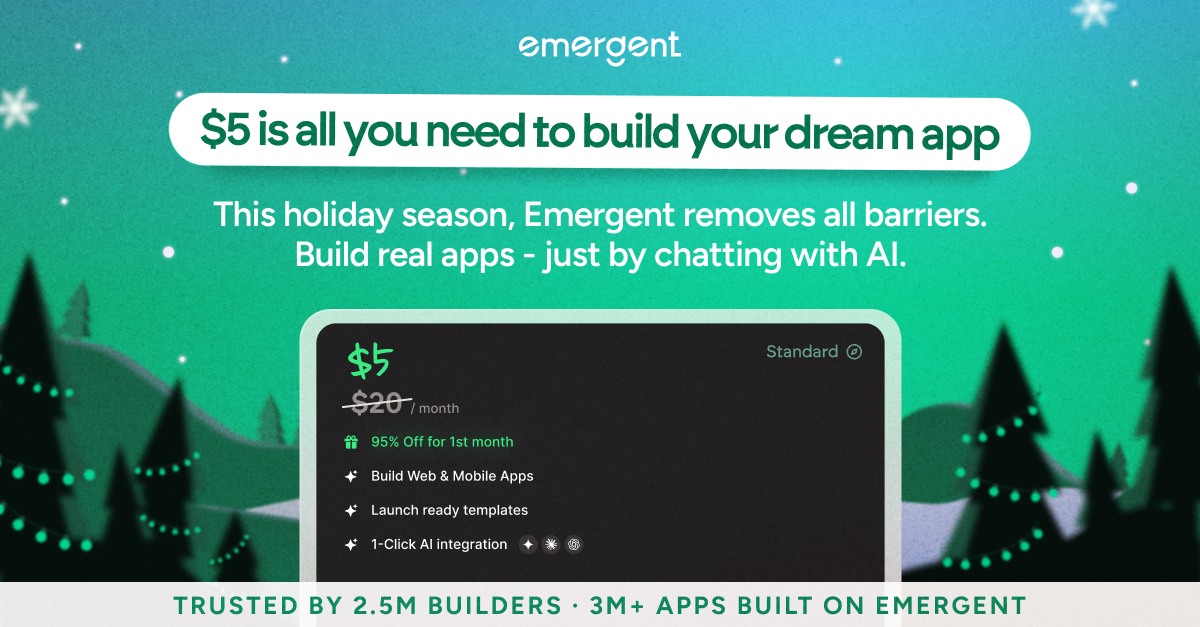
Introduction to Website Builders
In today’s digital age, having a robust online presence is crucial for both individuals and businesses. Whether you are an entrepreneur, a blogger, or an organization, a well-designed website can enhance your reach, reputation, and revenue. Traditionally, creating a website involved hiring a professional developer, a process that could be costly and time-consuming. However, the advent of website builders has revolutionized the way websites are created, making it accessible to virtually everyone.
Website builders are user-friendly tools that allow you to construct websites without needing extensive coding knowledge. These platforms typically offer drag-and-drop interfaces, customizable templates, and various features to suit your unique needs. The primary advantage of using a website builder is its simplicity; you can develop a professional-looking website in a fraction of the time and at a significantly lower cost compared to traditional methods.
Notably, free website builders have emerged as an excellent option for beginners, hobbyists, and small businesses on tight budgets. These platforms provide the essential tools needed to launch a website without the initial financial investment, coupled with free hosting and free domain options in some cases. While premium versions are available for more advanced features, many free website builders are sufficient for a basic online presence.
Using a free website builder can offer a plethora of benefits. First and foremost, it eliminates the overhead costs associated with hiring developers or web designers. Additionally, many free website builders come with integrated web hosting for beginners, making the setup process seamless. With numerous free templates and intuitive design tools at your disposal, you can quickly create and customize your site to match your vision, allowing you to focus on what truly matters: your content and audience engagement.
Overall, website builders serve as a powerful, cost-effective alternative to traditional website development methods. By opting for the best free website builder that fits your needs, you can establish an impactful online presence without breaking the bank.
Key Features to Look For in a Free Website Builder
When selecting the best free website builder in 2024, understanding and evaluating the essential features can significantly impact your online presence. Here are some critical attributes to consider:
Ease of Use
One of the most vital aspects is the ease of use. A user-friendly interface can save you time and frustration. Look for drag-and-drop functionality, intuitive design tools, and straightforward navigation that even beginners can handle.
Template Selection
Diverse template options allow users to customize their websites to fit specific themes and industries. Ensure the free website builder you choose offers a wide range of professionally designed templates that are easily customizable to reflect your brand’s identity.
Customization Options
Customization is crucial for creating a unique website. The best free website builders provide extensive customization options, enabling you to alter layouts, fonts, colors, and images. This flexibility ensures your website stands out and aligns with your vision.
Mobile Responsiveness
In today’s digital world, mobile responsiveness is essential. Your website must look and function well on various devices, including smartphones and tablets. A quality website builder will offer mobile-friendly templates and preview features to ensure your site adapts seamlessly to all screen sizes.
SEO Tools
Building a website is only half the battle; getting noticed is the other. SEO tools help your site rank higher in search engine results. Look for built-in SEO features that allow you to optimize meta descriptions, titles, and URLs, enhancing discoverability and driving organic traffic.
E-commerce Capabilities
If you plan to sell products or services, e-commerce capabilities are non-negotiable. The best free website builder should support essential e-commerce functions such as product listings, shopping cart integration, secure checkout, and payment gateway options.
Customer Support
Reliable customer support can make a significant difference, especially for beginners. Ensure the website builder offers accessible support channels such as live chat, email, and comprehensive knowledge bases to assist you whenever you encounter issues or have questions.
Top Free Website Builders to Consider in 2024
When it comes to finding the best free website builder in 2024, several options stand out for their robust features, user-friendly interfaces, and versatility. Exploring these builders can help you determine which one best meets your needs.
Wix: Wix remains a popular choice due to its extensive template library and intuitive drag-and-drop editor. Users can build professional-looking sites without any coding knowledge. Its advantage lies in its flexibility, allowing users to add various functionalities through its App Market. However, the free version includes Wix-branded ads, and advanced features often require paid plans.
WordPress.com: WordPress.com offers a solid platform for creating and managing blogs or simple websites. It is highly customizable through themes and plugins, giving users creative control. The user-friendly dashboard makes it a great option for beginners. However, the free plan has limited storage and themes, and eCommerce functionalities are restricted to paid plans.
Weebly: Weebly provides a seamless experience for users who prefer a simple, straightforward building process. The drag-and-drop editor is accompanied by a variety of templates, making it easy to create attractive websites quickly. The free version of Weebly includes basic SEO settings and a Weebly-branded footer, with additional features available in premium plans.
Google Sites: Google Sites is ideal for users seeking integration with other Google services. It offers a simple interface and real-time collaboration, similar to other Google Workspace products. While it lacks the extensive customization options of Wix or WordPress.com, its no-frills approach makes it suitable for internal projects, small websites, or educational purposes.
Choosing the right web hosting for beginners is also crucial when starting with a free website builder. Many of these platforms offer free hosting and free domain options, which can significantly lower initial costs. However, be mindful of each platform’s limitations and decide based on the specific needs and future growth potential of your website.
Comparing Free and Paid Plans
In the realm of website development, selecting between free and paid plans can significantly impact your site’s usability and performance. Free website builders often provide essential tools required for basic website creation. These include templates, drag-and-drop interfaces, and limited storage and bandwidth. Platforms like Wix and Weebly offer intuitive interfaces and enough customization to cater to personal blogs or small business sites. However, to access more sophisticated features, you might need to consider upgrading to a paid plan.
One of the most notable differences between free and paid plans lies in the range of customization options available. Free plans often come with limited templates and design flexibility, which can make your website look generic or fail to reflect your brand effectively. Furthermore, the inclusion of ads on free plans may detract from the professional appearance of your site. By upgrading to a paid plan, you can enjoy ad-free experiences, access a broader array of premium templates and advanced design tools, thereby enhancing your site’s aesthetics and functionality.
Another crucial factor is storage and bandwidth. Free hosting plans usually come with restrictive limits on both, which may suffice initially but can quickly become bottlenecks as your website grows in content and traffic. Paid plans generally offer scalable options for storage and bandwidth, ensuring that your website runs smoothly even with high visitor volumes. For instance, if you operate an e-commerce site or a content-heavy platform, these upgrades are vital for maintaining site performance and user satisfaction.
Additional benefits of paid plans include enhanced security features, priority customer support, and the capability to integrate with various third-party apps and services. For web hosting for beginners, having access to comprehensive support and robust security is often worth the investment. Moreover, paid plans typically come with a free domain for the first year, lending your website a more professional and memorable web address.
Ultimately, while free website builders provide a suitable starting point, the advantages of paid plans can significantly justify the investment for businesses and individuals serious about their online presence. Careful consideration of your website’s specific needs will help you determine the most appropriate plan for your goals.
Pros and Cons of Using Free Website Builders
One of the biggest attractions of using free website builders is the significant cost savings they offer. For beginners and small business owners looking to establish an online presence without a substantial financial commitment, these platforms provide a viable starting point. Free website builders often come with straightforward, user-friendly interfaces, allowing users with minimal technical expertise to design and launch a website quickly and efficiently.
However, along with these advantages, there are certain limitations to be mindful of. Free website builders typically come with reduced functionality compared to their paid counterparts. This can manifest in various forms, from limited design templates to restricted customization options and fewer advanced features, such as eCommerce integrations or SEO tools. These constraints may impede the ability to scale or modify the website as the business grows.
Another noteworthy downside is the presence of advertisements on sites created with the best free website builder options. Providers often offset the cost of offering free services by displaying their own ads on users’ websites. While this is understandable from a business perspective, it can detract from the professional appearance of your site and potentially interfere with user experience.
Additionally, free hosting and free domain options provided alongside free builders often come with limitations. Free hosting services may not offer the same level of performance and reliability as paid alternatives, which could result in slower website load times or unexpected downtimes. Similarly, free domains usually include the website builder’s branding, which can impact the credibility and branding of your own site.
Customer support is another critical factor to consider. Free website builders often provide limited customer support, which can be challenging when facing technical issues or needing guidance on advanced features. The lack of robust support can be particularly detrimental for beginners who may require more assistance in managing their sites.
Case Studies: Success Stories Using Free Website Builders
Free website builders have become vital tools for countless individuals and small businesses creating an online presence without a hefty budget. Real-world success stories demonstrate their potential and versatility. One notable example is a local bakery that leveraged a popular free website builder to create an engaging, user-friendly site. The bakery’s site featured vibrant imagery of their products, an integrated blog for sharing recipes, and an online order form. The ease of use of the website builder allowed the bakery owner, who had no prior web development experience, to launch the site within days. This website significantly enhanced their customer reach and engagement, leading to a 30% increase in sales within the first six months.
Another inspiring case involves a freelance graphic designer looking to showcase their portfolio. Utilizing a free website builder, the designer created a sleek, visually appealing site featuring an interactive portfolio, client testimonials, and a contact form. The website builder’s drag-and-drop interface made it possible for the designer to easily customize the site to reflect their unique style. The site was a pivotal factor in attracting new clients, resulting in a doubling of freelance projects within the first year.
A small-scale online retail startup also benefited from the best free website builder. The startup used the builder’s built-in eCommerce tools to set up an online store featuring their handmade products. With features such as customizable templates, SEO tools, and secure hosting, the startup could effectively compete in the saturated online market. After launching the site, the startup reported a significant increase in web traffic and sales, directly attributing their success to the website builder’s capabilities.
Lastly, a non-profit organization utilized a free website builder to promote their community-driven initiatives. The builder’s template options and easy-to-use content management tools allowed the organization to highlight ongoing projects, accept donations, and engage with volunteers. The intuitive interface enabled the non-profit to update the site regularly with new content, increasing volunteer sign-ups and donation amounts significantly.
These case studies underscore the transformative impact of free website builders across various industries, illustrating how they can effectively address diverse web development needs. By optimizing the functionality and aesthetics of their websites, these users harnessed the power of their respective builders to achieve remarkable outcomes.
Tips for Getting the Most Out of a Free Website Builder
Maximizing the potential of a free website builder can significantly impact the efficacy of your online presence. Selecting the appropriate template is pivotal; opt for templates that align with your brand identity and business objectives. Most free site builders offer a plethora of templates tailored to various industries and purposes. Ensure the template is mobile-responsive, as an increasing number of users access websites via smartphones and tablets.
Leveraging the tools provided by the free website builder can enhance your site’s functionality and appearance. Familiarize yourself with features such as drag-and-drop editing, custom CSS, and template customization. These tools can help you create a unique and professional-looking website without needing extensive coding knowledge. Additionally, take advantage of any integrated analytics tools to track visitor behavior and adjust your website’s performance accordingly.
Optimizing your website for search engines is crucial for increasing visibility and attracting organic traffic. Conduct keyword research to identify relevant terms associated with your business, such as “best free website builder” or “web hosting for beginners.” Use these keywords naturally in your site’s content, meta descriptions, and image alt texts to enhance SEO performance. Many free website builders include SEO tools; utilize these features to improve your website’s search engine ranking.
Improving user experience is another essential aspect of getting the most from a free website builder. Ensure your site has a clean, intuitive layout that facilitates easy navigation. Minimize load times by optimizing images and leveraging browser caching. Pay attention to the overall visual appeal, including color schemes, fonts, and alignment, to keep visitors engaged. Offer relevant and valuable content to establish trust and maintain user interest.
By adhering to these tips, users can fully harness the potential of free website builders, creating functional, optimized, and user-friendly websites that stand out in 2024.
Conclusion: Making the Right Choice
As we navigate through the array of options available, it is crucial to recognize that choosing the best free website builder in 2024 hinges on individual needs and objectives. Each builder offers unique features and functionalities that cater to different levels of expertise and diverse requirements. Whether you seek user-friendly interfaces, robust customization options, or seamless integration with web hosting for beginners, identifying your specific needs is the first step in the selection process.
Key factors such as ease of use, design flexibility, and additional offerings like free hosting and free domain registration play pivotal roles. Ensuring that the chosen platform can grow with your website also remains vital. From drag-and-drop builders to those offering more detailed design control, it’s essential to explore hands-on experience with various builders. Trying out several options allows you to compare firsthand how each performs against your expectations and priorities.
Enabling future growth, securing your domain, and hosting are not just technical aspects but foundational steps toward establishing a successful online presence. Platforms offering comprehensive solutions for both free hosting and free domain names can significantly streamline your journey, particularly if you are just starting out. That said, always look beyond the immediate cost-benefit analysis to the long-term potential and limitations of each platform.
Ultimately, the decision should stem from a clear understanding of your project’s scale, anticipated traffic, and how much time and effort you are willing to invest in maintenance and customization. Experimentation is encouraged; take advantage of free trials and starter plans to thoroughly investigate the user experience. This explorative approach ensures that your final choice is informed and aligned with your long-term vision and goals.






0 Comments